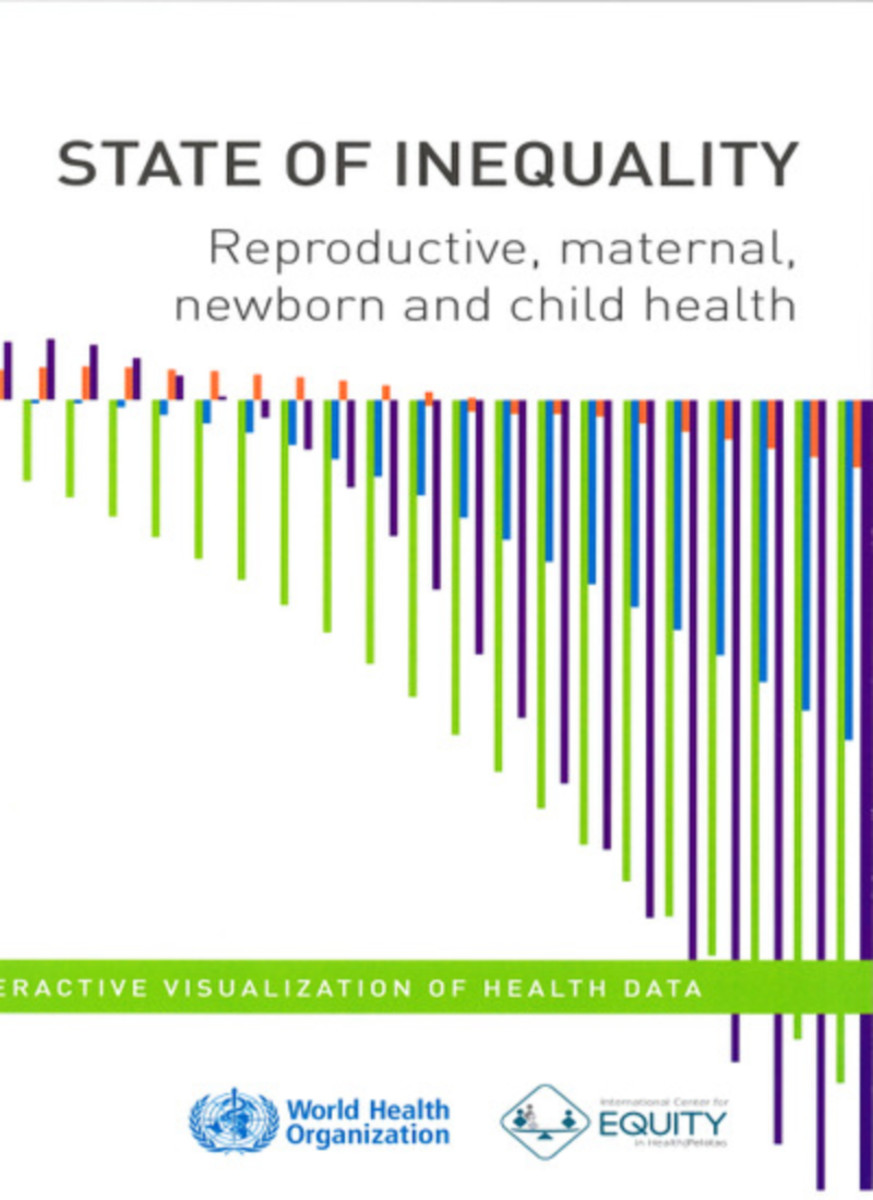State of Inequality
Reproductive Maternal, Newborn, and Child Health
- Publisher
World Health Organization - Published
8th September 2015 - ISBN 9789241564908
- Language English
- Pages 118 pp.
- Size 7.875" x 10.25"
The health of the world's population is in a state of inequality. That is to say, there are vastly different stories to tell about a person's health depending on where they live, their level of education, and whether they are rich or poor, etc. Monitoring the state of inequality in health takes into account the current experiences of population subgroups, as well as the trends of how health experiences in these subgroups have changed over time.
The report State of Inequality: Reproductive, Maternal, Newborn and Child Health demonstrates best practices in reporting the results of health inequality monitoring, and introduces innovative ways for audiences to explore inequality data. Interactive data visualization components--including story-points, equity country profiles, maps and reference tables--accompany the key messages and findings of this report, allowing users to customize data displays and engage in benchmarking according to their interests.
The report delivers both promising and disappointing messages about the situation in low- and middle-income countries. On the one hand, within-country inequalities have narrowed, with a tendency for national improvements driven by faster improvements in disadvantaged subgroups. In certain indicators and countries, these improvements have been substantial. On the other hand, however, inequalities still persist in most reproductive, maternal, newborn and child health indicators. The extent of within-country inequality differed by dimension of inequality and by country, country income group and geographical region. There is still much progress to be made in reducing inequalities in RMNCH.
World Health Organization
World Health Organization is a Specialized Agency of the United Nations, charged to act as the world's directing and coordinating authority on questions of human health. It is responsible for providing leadership on global health matters, shaping the health research agenda, setting norms and standards, articulating evidence-based policy options, providing technical support to countries, and monitoring and assessing health trends.


